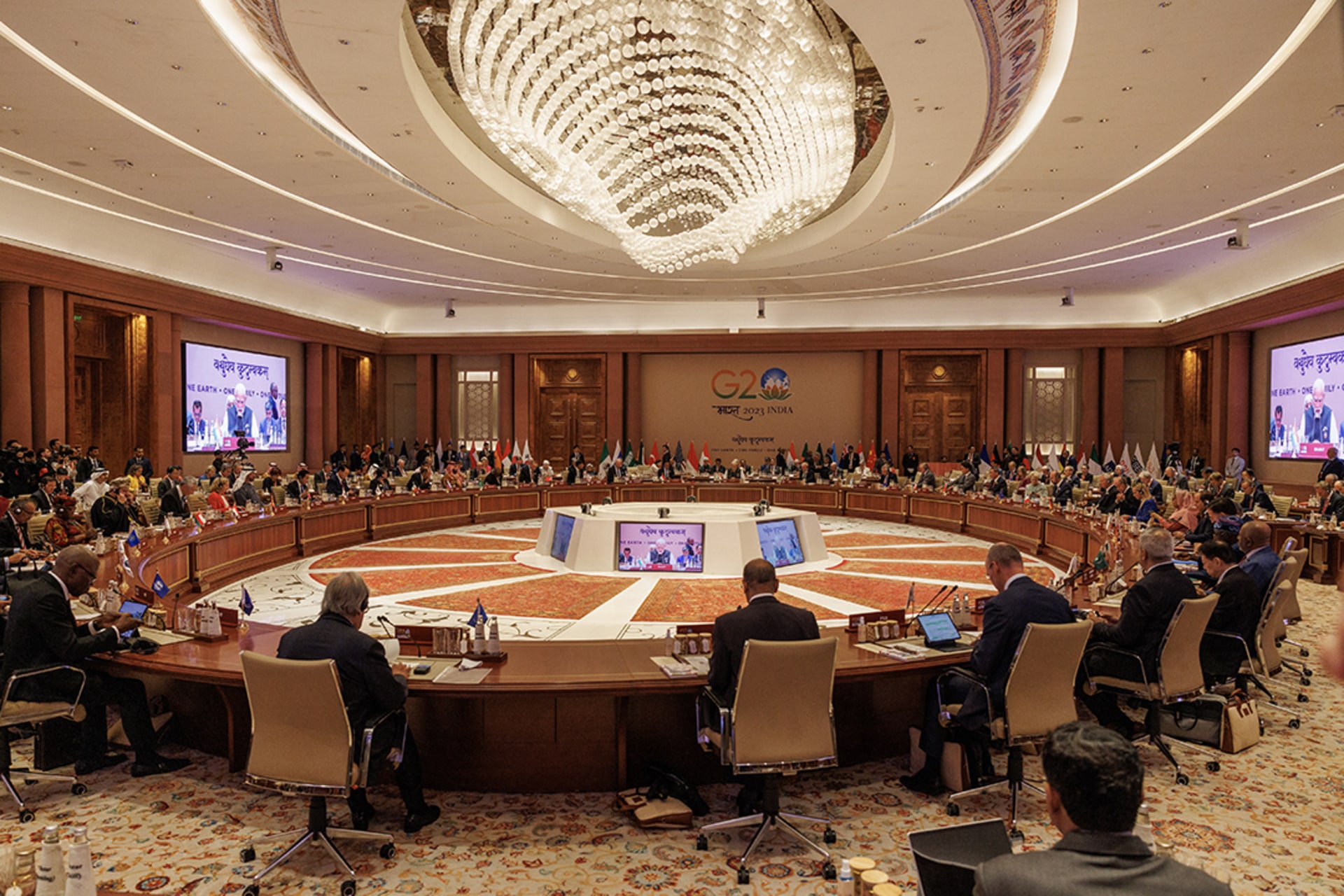Pope Benedict’s First Twelve Months
Published
Pope Benedict XVI’s first year has been quiet and at times confusing to his critics. But experts caution against reading too much of a theological shift into the pope’s tranquil beginnings.
This publication is now archived.
Introduction
Papal observers have called it a surprising first year for Pope Benedict XVI. As Cardinal Joseph Ratzinger, he drew criticism from liberal Catholics for his staunch defense of Roman Catholic orthodoxy. But so far, Benedict appears to have disarmed his critics. The main surprise has not been any specific doctrinal position, but rather a determined modesty from a man once known for aggressive outspokenness. Ratzinger’s old nickname, Panzerkardinal, or “battle tank cardinal,” is beginning to seem anachronistic. Der Spiegel, of the pope’s native Germany, writes of Benedict’s “quiet non-revolution.” His first encyclical*, which was released nine months into his papacy, was used to reaffirm the idea of love—a remarkably moderate choice, experts say, for a theological conservative. Now, on the first anniversary of his election, the pope has asked for a document on the issue of whether it might be acceptable for married Catholics to use condoms, within a marriage, when one partner is infected with HIV/AIDS. The very move to consider such a change in church policy is viewed as significant.
What has been surprising about Benedict’s papacy?
His public reserve, Vatican experts say. As a cardinal, Ratzinger was prefect of the church’s Congregation for the Doctrine of the Faith, the Vatican congregation responsible for overseeing official doctrine, and was an outspoken critic of moral relativism. In an April 2005 interview with CFR’s Bernard Gwertzman, Gerald Fogarty, a Jesuit priest and professor at the University of Virginia, said that some Catholics were disappointed with Ratzinger’s selection because he symbolized the conservative side of the church’s ideological split, especially in the United States. Benedict’s first major statement was his encyclical on love, Deus Caritas Est, which came almost nine months into his papacy, and which experts say was a mere continuation of an ideologically moderate work already started by Pope John Paul II, Benedict’s predecessor. Experts say Benedict might be showing that he has no intention to compete with John Paul, who was called the “media pope” and the “great communicator” and basked in the public spotlight.
What is the significance of the current debate over condom use?
Pope Benedict has yet to delve into the questions most divisive among Catholics, experts say. These issues include homosexuality, abortion, divorce, and contraception. Analysts took note when the pope requested a Vatican council to prepare a document on the contraception debate—at the heart of which is whether the church should condone the use of condoms within a marriage, for health reasons, when one partner is infected with the HIV virus. Influential bishops, including Cardinal Carlo Maria Martini, the former archbishop of Milan, have spoken up on the issue, calling for policy change. Martini—though he hasn’t disagreed with Pope John Paul’s assessment in his encyclical “Veritas Splendour” that the use of condoms as contraception is “intrinsically evil”—nonetheless asserted that, in this very specific instance, they are the “lesser evil” when used to prevent the transmission of HIV.
This issue is of particular importance in Africa and Latin America where HIV is rampant. Experts say Catholic missionaries and aid-workers in Africa have long been bending Vatican policy in practice, in some cases unofficially distributing condoms to HIV patients. Some argue that an official Vatican pronouncement condoning condom use within a marriage could make an important difference in the effort to stem the spread of AIDS. Catholicism wields a great deal of influence in the developing world, though it is seen as facing increased competition from the Pentecostal and evangelical Christian faiths, particularly in Africa.
What is the official position of the Roman Catholic Church on contraception?
Traditionally, Vatican doctrine forbids the use of any contraceptive whatsoever. The sole exception to this policy was spelled out in Pope Paul VI’s 1968 encyclical, Humanae Vitae. In the work, Paul argued that it was theologically acceptable for women to take birth-control pills for medical purposes, but inappropriate for the pills to be used as a contraceptive. Supporters of a loosened theology on condoms argue that a similar reasoning can be applied to the current debate—condoms used explicitly for health purposes should not be deemed a “contraceptive” at all, they argue. Others say Vatican doctrine should be pushed further yet, arguing that there is a positive moral mandate for a male infected with HIV to protect the health of his spouse by wearing a condom.
How does Pope Benedict’s first encyclical fit into this debate?
The work was the pope’s first major public statement. He used it to clarify his views on love in all its variations, whether erotic, spiritual, or filial. Benedict said the work, the title of which translates to “God is Love,” was, in part, inspired by his reflection on terrorism, which he sees as an obvious affront to God’s command to love thy neighbor. He drew a distinction between erotic love, the Greek eros, and another Greek concept, agape, which describes a more selfless, spiritual state of being. But he didn’t condemn eros—a point of significance to the current debate over condoms. He warned against allowing a narrow idea of sensuality to dilute the concept of love “to mere sex,” but nevertheless reaffirmed the value of sensuality. Still, as the Economist put it, “while the pope’s reflections on the erotic grabbed most headlines, his final section—about love as social value—was perhaps more significant.” A number of experts agree with this assessment. “Some people thought it was an encyclical that made no waves, but I think that oversimplifies,” says Peter Steinfels, director of Fordham University’s Center on Religion and Culture. “In fact, it’s pretty challenging, the idea that love is the ultimate category in which we define reality.” But Steinfels agrees that the topic of love in itself was surprising, particularly given that this was Benedict’s first encyclical. “A lot of people thought he would talk about Truth. There had been some stereotyping or caricature, but even so it wasn’t unreasonable to think that he would take a somewhat harder line.”
How does the condom debate fit into Vatican foreign policy?
Experts emphasize the need for caution when drawing inferences from the condoms debate. Broadly, they say Benedict’s willingness to take up the condom issue seems to go hand in hand with an interest in Africa and the developing world. “The pope clearly has an emphasis on Africa,” says Steinfels. “He has met with African bishops during the time before his election, and he has mentioned Africa repeatedly.” But he adds that this focus should be seen as pragmatic, and not as a harbinger of a shift toward a more liberal theology. Experts say bold predictions about Benedict’s foreign policy priorities would be well premature.
---
* Encyclicals are recurring letters from the pope to bishops, setting out Roman Catholic policy.t
Colophon
Staff Writers
- Lee Hudson Teslik





